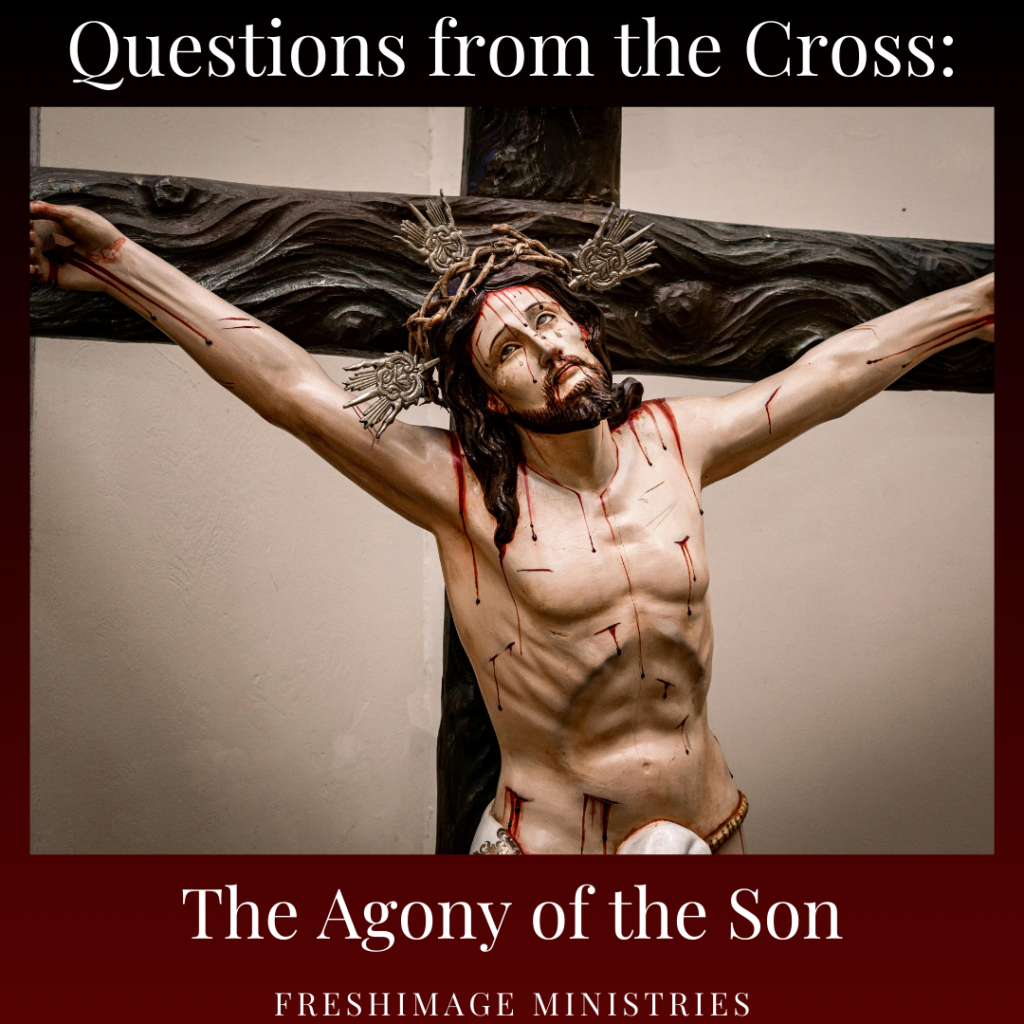
Jesus endured immense suffering. Alongside excruciating physical pain, His poignant words, “My soul is sorrowful unto death” (Matt. 26:38), reveal His spiritual agony. Centuries prior, Isaiah foresaw this suffering, describing the Suffering Servant as “despised and rejected by men, a man of sorrows” (Is. 53:3). The prophet pinpointed one major cause of Jesus’ suffering, our sin. Isaiah declared, “he was torn away from the land of the living, for our faults struck down in death… pierced for our offenses, crushed for our wrongdoings” (Is. 53:4).
In His agony, beautifully expressed in the prayer of the Reproaches, Jesus repeats the haunting question, “people, my people, what have I done to you?” It is important to note that Jesus’s use of the interrogative mood is not a quest for more information or understanding. Rather, it’s an invitation for us, His people, to grapple with this unsettling question and seek its answer.
So, why was Jesus killed? For Jesus, the crucifixion represented the ultimate fulfillment of His mission, a sacrificial offering to cleanse humanity of the guilt stemming from the original sin. From the perspective of those who called for His death, it likely stemmed from their realization that they couldn’t control Jesus. His teachings clashed with the narratives they had constructed to justify their social status and power, a clash of universal dimensions which echoes through human history to our present day.
Choosing to embrace suffering willingly is perhaps the most difficult path an individual can tread. Those who undertake it are convinced that it’s the only route to achieve goals of utmost significance, goals more important than their own comfort, well-being, safety, or even life itself. Such a decision reflects a mature, deliberate, and well-thought-out sacrifice, often driven by boundless love.
The truth that Jesus brought was met with falsehood and distortion, as the establishment sought to crush him. The so-called “trial” Jesus underwent denied Him not only recognition of His divine nature, but even the most basic dignity afforded to a human being. It was orchestrated to present a facade of moral authority, and to eliminate Him as a competing influential leader whose popularity was growing. However, the legal proceedings of this “trial” violated numerous local laws, rendering it a mockery of justice.
According to Judaic law:
- Judas, being Jesus’s confidant, could not accuse or bear witness against Him.
- Legal proceedings could not take place at night.
- Charges could not be brought by the Sanhedrin; they were the function of individual witnesses.
- The Sanhedrin lacked the authority to make legally binding decisions that night due to the absence of a quorum.
- Capital punishment cases could not be tried on a preparation day for a Sabbath, Passover, or any other major holiday.
- Deliberations of a capital punishment case were required to span at least two days.
- The defendant in a capital punishment case was entitled to have an advocate, which Jesus did not.
- A unanimous decision to sentence someone to death was supposed to result in acquittal, as it indicated bias on the part of the court.
- Changing the charge against Jesus from blasphemy to treason when bringing him to Pilate was illegal.
These flagrant violations underscore the injustice of Jesus’s trial and the desperate lengths to which His adversaries went to silence Him.
Profound suffering exerts a powerful and negative impact on an individual. Even Jesus, subjected to barbaric treatment by His oppressors, displayed signs of the consequences of such torment. While hanging on the cross, nearing death, He echoed the opening of Psalm 22 with a cry of utter desolation: “My God, why have you forsaken me?” (Ps. 22:1). This cry, posed in an interrogative mode, carries profound significance. It wasn’t a mere inquiry for information, but rather an entreaty for a response from the Father. It was a plea, a desperate cry, akin to saying, “Father, my task is complete. Please free me from this excruciating pain.” This cri de coeur is one of Son to Father, beseeching liberation from bodily torment willingly undergone out of love, as experienced by Life Himself.
In his final moments, Jesus on the Cross once again drew from the Psalms, quoting Psalm 31: “Into your hands I entrust my Spirit” (Ps. 31:5), concluding His life with the ultimate act of trust and submission to the will of the Father.

Andrzej Zahorski is Director of Music at St. Anselm Parish in St. Louis, MO. He holds a doctorate of musical arts from Stanford University.